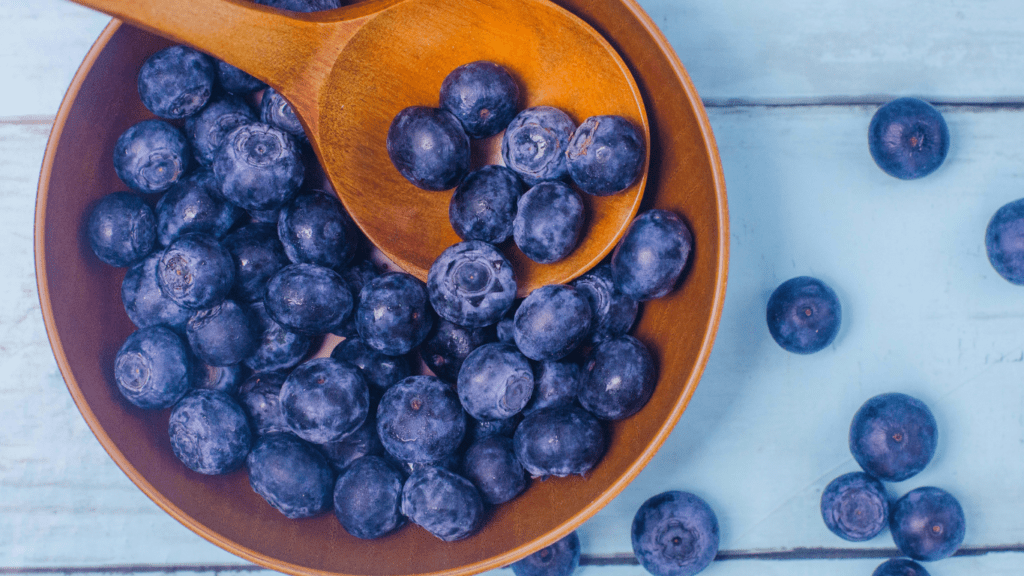Understanding Superfoods for Pets
Superfoods offer concentrated nutrients that significantly boost a pet’s diet. With essential vitamins, minerals, and antioxidants, these ingredients improve overall health. Superfoods include items like:
- blueberries
- sweet potatoes
- salmon
Nutrient Density
Superfoods pack high nutritional value in small servings. Blueberries, for instance, are rich in antioxidants, while sweet potatoes contain beta-carotene and dietary fiber. Salmon provides omega-3 fatty acids, which support heart health.
Health Benefits
Incorporating superfoods enhances various health aspects. Improved skin and coat shine, elevated energy levels, and better digestion are common benefits. For example, antioxidants in blueberries help combat free radicals, potentially reducing cancer risks. Omega-3 fatty acids from salmon can reduce inflammation and support joint health.
Safe Superfoods for Pets

Not all superfoods are suitable for pets. Always choose vet-approved options. Examples include:
- Blueberries: Antioxidants, Vitamin C, and fiber.
- Sweet Potatoes: Beta-carotene and Vitamin A.
- Salmon: Omega-3 fatty acids and protein.
- Pumpkin: Fiber and Vitamin A.
- Kale: Vitamins A, C, K, and calcium.
Serving Suggestions
Introduce superfoods gradually. Mix small amounts into regular meals. Monitor for any adverse reactions and consult your vet to confirm suitability. For instance, a tablespoon of pureed pumpkin added to meals can aid digestion but should be increased slowly to avoid stomach upset.
Vet Consultation
Consult a vet before making any significant diet changes. They can provide personalized recommendations based on your pet’s specific needs. All pets are unique, and professional advice ensures the superfoods benefit their health without causing issues.
Superfoods improve pet health when incorporated properly and under veterinary guidance. They provide essential nutrients and support various health aspects, making them valuable additions to any pet diet.
Key Benefits of Superfoods
Including superfoods in your pet’s diet offers multiple benefits that contribute to their overall health and well-being. Here are some key advantages:
Enhanced Nutrition
Superfoods provide concentrated nutrients essential for optimal health. For example, blueberries contain antioxidants, vitamins C and E, and fiber. Sweet potatoes offer high levels of vitamins A and C, potassium, and fiber. These ingredients boost health by filling nutritional gaps in regular pet food.
Improved Digestion
Specific superfoods aid digestion and reduce gastrointestinal issues. Pumpkin, high in fiber, supports healthy digestion and relieves constipation. Kale, rich in fiber and water content, aids regular bowel movements. These ingredients help maintain a healthy digestive system.
Stronger Immune System
Rich in vitamins and minerals, superfoods bolster the immune system. Salmon, with omega-3 fatty acids and vitamin D, supports immune health. Blueberries, with antioxidants, combat oxidative stress. Including these in the diet can make your pet more resistant to illness.
Increased Energy Levels
Nutrient-dense superfoods enhance energy and vitality. Sweet potatoes, rich in carbohydrates and fiber, provide sustained energy. Kale, packed with iron and magnesium, supports muscle function and overall vitality. These ingredients help keep your pet lively and active.
Top Superfoods for Dogs
Dogs can greatly benefit from the nutrient-dense properties of certain superfoods. Introducing these ingredients enhances overall canine health.
Blueberries
Blueberries pack a serious antioxidant punch. Rich in vitamins C and K, they support dogs’ immune systems. Low in calories, they’re an excellent snack for weight-conscious pets. Always wash blueberries thoroughly before serving.
Kale
Kale offers vital nutrients like vitamins A, C, and K. It helps keep dogs’ bones strong and promotes healthy vision. Feeding kale in small, cooked portions avoids potential thyroid issues that raw kale can cause.
Pumpkin
Pumpkin provides a fiber-rich boost for digestive health. It’s especially helpful for dogs with sensitive stomachs or irregular digestion. Serve plain, cooked pumpkin to avoid added sugars and spices from canned products.
Sardines
Sardines are a fantastic source of omega-3 fatty acids. These fatty acids improve coat shine and skin health. Choose sardines packed in water without added salt to maintain their nutritional integrity.
Top Superfoods for Cats
Cats benefit significantly from specific superfoods, providing essential nutrients and improving overall health. Here are some of the best superfoods to include in your cat’s diet.
Salmon
Salmon is a powerhouse of omega-3 fatty acids that enhance coat shine and reduce inflammation. Besides fatty acids, it’s rich in high-quality protein crucial for muscle maintenance. Providing cooked, boneless salmon ensures your cat receives these benefits without risks.
Spinach
Spinach contains vital vitamins such as A, C, and K, along with minerals like iron and calcium. These nutrients support bone health and boost the immune system. Offering spinach in moderate amounts, chopped and cooked, ensures your cat can safely digest it.
Chia Seeds
Chia seeds offer fiber and omega-3 fatty acids which aid digestion and enhance skin health. They also contain antioxidants that combat cellular damage. Sprinkling a small amount over your cat’s food can provide these benefits without overwhelming their system.
Eggs
Eggs provide high-quality protein and essential amino acids crucial for muscle repair and growth. They’re also a good source of B vitamins to support energy levels. Offering cooked eggs ensures your cat avoids potential issues related to raw eggs.
How to Incorporate Superfoods into Your Pet’s Diet
Adding superfoods to your pet’s diet can enhance their health. Follow these tips to effectively introduce nutrient-rich ingredients.
Homemade Pet Food Recipes
Prepare homemade meals to ensure the quality and cleanliness of ingredients. Combine cooked salmon, sweet potatoes, and a small amount of steamed kale in a balanced ratio (e.g., 50% protein, 25% vegetables, 25% carbohydrates). Add blueberries or chia seeds as toppers. For cats, mix salmon with a cooked egg and spinach, then sprinkle chia seeds on top. Always cook ingredients properly to prevent bacterial infections.
Commercial Pet Food Options
Many brands offer superfood-enriched formulas. Check labels for ingredients like blueberries, pumpkin, sweet potatoes, and salmon. Opt for high-quality brands that prioritize natural, whole-food ingredients. Ensure the product meets AAFCO guidelines for complete nutrition. For cats, look for brands that include essential nutrients from sources like salmon and spinach.
Gradual Introduction Tips
Start by adding small amounts of new superfoods to your pet’s current diet. Gradually increase the portion over 7-10 days to avoid digestive issues. Monitor your pet for any adverse reactions such as vomiting or diarrhea. Consult your vet if any concerns arise. This gradual approach helps your pet’s digestive system adjust smoothly while maximizing health benefits.
Potential Risks and Considerations
- When adding superfoods to a pet’s diet, it’s crucial to be aware of possible risks and necessary considerations. Some pets might have allergies or sensitivities to certain foods, which could cause adverse reactions like diarrhea, vomiting, or rashes. Always monitor for any signs of discomfort and seek veterinary advice if symptoms occur.
- Portion size is another key factor. Overfeeding superfoods can lead to obesity or nutrient imbalances. For example, giving too many antioxidant-rich foods like blueberries could upset a pet’s stomach. Stick to appropriate serving sizes and balance them with regular pet food.
- Toxicity is also a concern. Not all human superfoods are safe for pets. Foods like grapes, raisins, onions, and garlic are harmful to cats and dogs. Before introducing any new food, ensure it’s pet-safe by consulting reliable sources or a veterinarian.
- Introduce new superfoods gradually. Sudden dietary changes can disrupt a pet’s digestive system. Start with small amounts and increase slowly, allowing the pet’s system to adjust. If any negative signs appear, pause and reassess the introduced food.
- Incorporating superfoods into a pet’s diet requires care and attention. Always prioritize their well-being and consult veterinary professionals for personalized advice. Proper management of portion sizes, awareness of potential allergens, and checking for food toxicity will help safely enhance your pet’s diet.



 Pet Travel & Safety Consultant
Jimmy Dixoneser is the go-to expert on pet travel and safety at Pet Paw Shack. He provides valuable guidance on how to ensure pets are safe, comfortable, and stress-free when traveling. From creating checklists for pet-friendly vacations to advising on the best travel gear, Jimmy’s expertise helps pet owners confidently navigate adventures with their pets, whether on the road or in the air.
Pet Travel & Safety Consultant
Jimmy Dixoneser is the go-to expert on pet travel and safety at Pet Paw Shack. He provides valuable guidance on how to ensure pets are safe, comfortable, and stress-free when traveling. From creating checklists for pet-friendly vacations to advising on the best travel gear, Jimmy’s expertise helps pet owners confidently navigate adventures with their pets, whether on the road or in the air.
